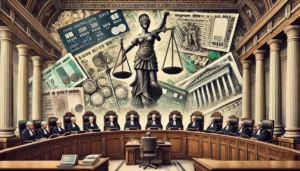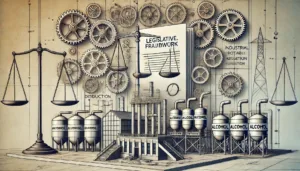Case Citation
Court Name: Supreme Court of India
Case Title: Abdul Rejak Laskar vs. Mafizur Rahman & Ors.
Case Number: Civil Appeal No. 14805 of 2024 (arising out of SLP (C) No. 19226 of 2022)
Date of Judgment: December 20, 2024
Judges: Justice J.B. Pardiwala and Justice R. Mahadevan
Facts of the Case
The case revolves around the dispute concerning a piece of land originally owned by Javed Ali, inherited by the respondents. The respondent no. 1 sold 1 katha and 5 lechas of land to the appellant in 1977 through two registered sale deeds. Despite transferring possession to the appellant, the respondents later attempted to dispossess him, prompting the appellant to file Title Suit No. 67/1979 for confirmation of his rights. While initially decided in his favor, the judgment was later overturned due to procedural issues, including non-joinder of necessary parties. Subsequent rounds of litigation saw partial victories for the appellant, with joint possession decreed but without enforcement of exclusive possession. Attempts for partition through revenue authorities were denied due to non-possession, leading the appellant to approach the civil courts, eventually culminating in this appeal before the Supreme Court.
Contentions of the Appellant
The appellant argued that under Section 154(1)(e) of the Assam Land and Revenue Regulation, 1886, the bar on civil court jurisdiction applies only when the conditions for imperfect partition under Section 97 are met. As the appellant did not fulfill the conditions required for imperfect partition, such as actual possession or consent of co-sharers, he asserted the jurisdiction of the civil court. The appellant emphasized that denying jurisdiction would leave him without any remedy for partition despite having a decree affirming his rights. Furthermore, he contended that disputes over title should always fall within the jurisdiction of civil courts, as revenue authorities lack the mandate to adjudicate such issues.
Contentions of the Respondents
The respondents maintained that the suit for partition was barred by Section 154(1)(e) of the Regulation, as the appellant failed to meet the conditions required for maintaining such claims. They argued that the proper forum for such disputes was the revenue authorities, and the appellant had bypassed procedural requirements by directly approaching the civil court. They further claimed that civil courts lack the authority to enforce imperfect partition when revenue authorities reject the request due to the applicant’s lack of possession or other statutory requirements.
Issues on this Judgment
- Whether the civil court had jurisdiction to entertain a suit for partition despite the bar under Section 154(1)(e) of the Assam Land and Revenue Regulation, 1886?
- Whether the appellant was entitled to partition and exclusive possession of his share in the disputed land?
Observations/Findings of the Supreme Court
The Supreme Court held that the jurisdiction of civil courts under Section 154(1)(e) is barred only when an imperfect partition suit is maintainable under Section 97. Since the appellant failed to meet the conditions for imperfect partition—actual possession and consent of co-sharers—this bar did not apply. The Court reaffirmed the principle that civil courts retain jurisdiction to adjudicate on title disputes and determine entitlements to partition. It further clarified that once a decree is granted for joint possession, the civil court can proceed to direct partition if no alternative remedy is available. The earlier decision of the High Court was set aside for misinterpreting the legal provisions and procedural aspects.
Principles Laid Down by the Court
- Civil courts have jurisdiction to adjudicate disputes related to title and determine the entitlement of parties to partition, even when imperfect partition is barred by revenue authorities.
- The bar under Section 154(1)(e) of the Assam Land and Revenue Regulation, 1886 applies only when the applicant fulfills the conditions for imperfect partition under Section 97.
- A decree affirming joint possession provides a basis for seeking partition through civil courts when no other remedies are viable.
- Perfect and imperfect partition must follow procedural requirements, with revenue authorities responsible for executing decrees, but not adjudicating title disputes.
Final Order
The appeal was allowed, the judgment of the High Court was set aside, and the earlier order of the Civil Judge, Nagaon (dated May 16, 2014) was restored, directing partition and exclusive possession of the appellant’s share.
Importance of This Judgment to Society
This judgment underscores the essential role of civil courts in safeguarding property rights and ensuring access to justice when procedural or jurisdictional barriers arise. By clarifying the scope of Section 154(1)(e) and affirming the jurisdiction of civil courts in title disputes, the Supreme Court reinforced the principles of equitable justice and the rule of law. It also highlights the interplay between civil and revenue jurisdictions, ensuring that procedural technicalities do not defeat substantive rights.








